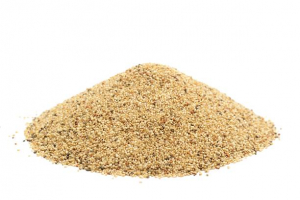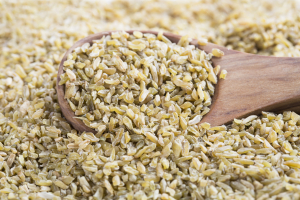Top 8 Health Benefits of Low-Carb and Ketogenic Diets
For many years, low-carb diets have been controversial. Some claim that these diets' high-fat content raises cholesterol and contributes to heart disease. ... read more...Low-carb diets, however, consistently demonstrate their worth as healthy and beneficial diets in scientific studies. Below are low-carb and ketogenic diet advantages for your health.
-
The worst negative effect of dieting is usually hunger. It is one of the key causes of the unhappy feelings and finally giving up that many people experience. But eating low-carb naturally makes you feel less hungry. Furthermore, studies consistently show that cutting off carbohydrates and increasing protein and fat results in much lower calorie intake.
People tend to substitute low-protein foods (grains, sugars) for higher-protein foods like meat, fish, and eggs. Numerous studies demonstrate how protein can enhance muscle mass, which is metabolically active and burns calories constantly, while also reducing appetite and boosting metabolism. Many nutritionists think that the key factor in the success of low-carb diets is the high protein content of those diets.

Reduce Your Appetite 
Reduce Your Appetite -
One of the simplest and most efficient strategies to lose weight is to reduce your carb intake. Studies show that those on low-carb diets experience faster weight loss than those on low-fat diets.
This is due to the fact that low-carb diets act to rid excess water from your body, which lowers insulin levels and causes you to lose weight quickly in the first week or two. Studies comparing low-carb and low-fat diets have shown that people who limit their carb intake occasionally shed 2-3 times as much weight—without feeling hungry. In comparison to a traditional weight loss diet, one research of obese adults revealed that a low-carb diet was particularly successful for up to six months. 609 overweight adults participated in a year-long study on low-fat or low-carb diets, and both groups dropped similar amounts of weight.

Lead to More Weight Loss at First 
Lead to More Weight Loss at First -
Your body has many types of fat. Your health and risk of the disease depend on where your fat is stored. The two main types are visceral fat, which builds up in the belly and is common in most overweight men, and subcutaneous fat, which is found beneath the skin.
Your insides often get encased in visceral fat. Extra visceral fat may contribute to the metabolic dysfunction that is so prevalent in the West today by causing inflammation and insulin resistance. Diets low in carbohydrates are highly successful at shedding this dangerous belly fat. In fact, a greater percentage of the fat that people who follow low-carb diets seem to lose come from the abdominal cavity. This should eventually result in a significantly lower risk of type 2 diabetes and heart disease.

A Greater Proportion of Fat Loss Comes From Your Abdominal Cavity 
A Greater Proportion of Fat Loss Comes From Your Abdominal Cavity -
In your bloodstream, fat molecules called triglycerides can be found. High fasting triglyceride levels, or blood levels after an overnight fast, are well-known risk factors for heart disease.
Consumption of carbohydrates, particularly fructose, the simple sugar, is one of the main causes of increased triglycerides in sedentary people. A low-carb diet lowers triglycerides and the overall proportion of body fat. As glucose and glycogen levels fall as a result of eating fewer carbohydrates, it enables your body to access fat reserves for energy production. Since triglycerides make up the majority of fat, their levels are drastically dropping. So people typically notice a very dramatic drop in blood triglycerides when they cut back on carbohydrates. On the other hand, low-fat diets often result in an increase in triglycerides.

Triglycerides Tend to Drop Drastically 
Triglycerides Tend to Drop Drastically -
The "good" cholesterol is typically referred to as high-density lipoprotein (HDL). Your risk of heart disease decreases with higher HDL levels in comparison to "bad" LDL levels.
By increasing HDL levels while gradually reducing LDL levels, low-carb diets stabilize cholesterol levels. Eating fat is one of the best methods to raise "good" HDL levels, and low-carb diets contain a lot of fat. Therefore, it is not surprising that HDL levels increase significantly on low-carb, healthy diets while they usually only rise somewhat or even decline on low-fat diets. But instead of fatty meat and processed foods, one must eat things like fish and avocados, which are beneficial sources of fat.

Increased Levels of ‘Good’ HDL Cholesterol 
Increased Levels of ‘Good’ HDL Cholesterol -
Diabetes and insulin resistance, which affect millions of people worldwide, can both be treated with low-carb and ketogenic diets. Studies show that dramatically reducing carbohydrates decreases blood sugar and insulin levels.
Low-carb diets are recommended for the treatment of diabetes by numerous researchers. In fact, very low carbohydrate diets were the recognized treatment standard for diabetics. Furthermore, when people follow low-carb diets, they appear to be effective over the long run. People with type 2 diabetes followed a low-carb diet for six months in one research. If they followed the diet, their diabetes was still well-managed more than 3 years later. Similar to this, during a 4-year period, those with type 1 diabetes who adhered to the diet saw a noticeable improvement in their blood sugar levels.

Reduced Blood Sugar and Insulin Levels 
Reduced Blood Sugar and Insulin Levels -
According to BBC News, a low-carb diet like the Atkins one is more effective in lowering blood pressure than weight-loss drugs. It claimed that a study had found that twice as many people on a low-carb diet had lowered blood pressure compared to those who were taking orlistat.
Hypertension, or raised blood pressure, increases the risk for a wide range of diseases including heart disease, stroke, and kidney failure. Low-carb diets can help lower blood pressure, which should lower your risk of developing certain diseases and prolong your life. The low-carb diet did have the benefit of lowering blood pressure. The low-carb group's systolic blood pressure (the top number in a blood pressure reading) decreased by roughly 6%, while their diastolic blood pressure (the lower number) decreased by 4.5 points.

May Lower Blood Pressure 
May Lower Blood Pressure -
“There’s no doubt that people with metabolic syndrome and type 2 diabetes do better on low-carb diets”, said Ohio State University’s Professor Jeff Volek. A condition known as metabolic syndrome has a strong correlation with your risk of developing diabetes and heart disease. In fact, the symptoms of metabolic syndrome include:
- Abdominal obesity
- Elevated blood pressure
- Elevated fasting blood sugar levels
- High triglycerides
- Low “good” HDL cholesterol levels
However, all five of these symptoms can be effectively treated with a low-carb diet. These conditions are almost completely removed by such a diet.

Effective Against Metabolic Syndrome 
Effective Against Metabolic Syndrome





























